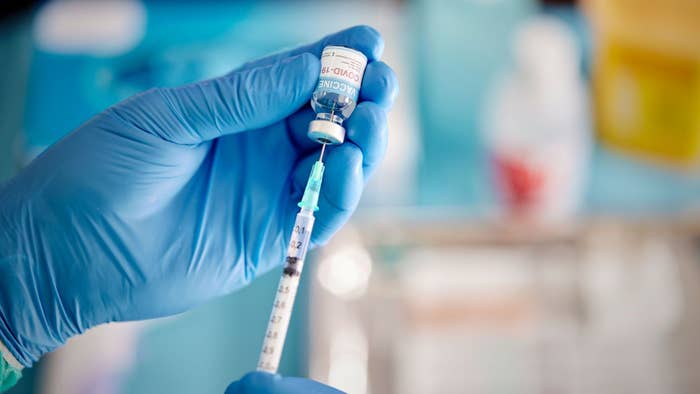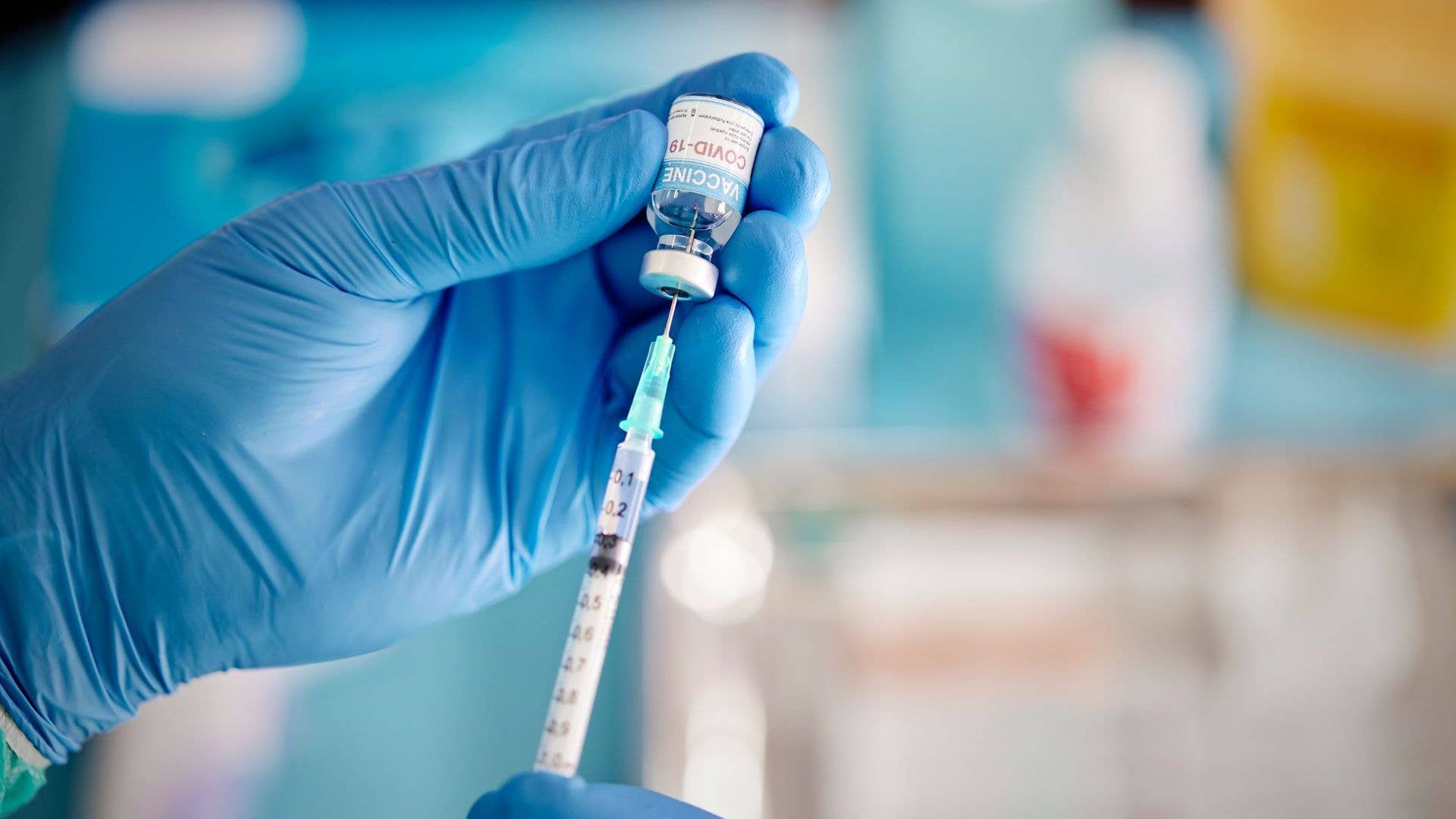
UPDATED 10/20 5:12 p.m. ET:The FDA has approved booster shots for the Moderna and Johnson & Johnson vaccines on Wednesday. Additionally, the federal agency has authorized medical providers to allow people to receive a booster shot that’s different from the vaccine they initially received.
You can head here to read the FDA’s statement on the authorizations in full.
See original story below.
According to a new report from the New York Times, the U.S. Food and Drug Administration is planning on allowing people to receive a different dose of the COVID-19 vaccine for their booster shot than the one that was initially administered to them.
The agency is reportedly expected to make the announcement later this week. With the announcement, the FDA might advise people to get a booster of the same vaccine they initially received if they can but will reportedly not recommend a certain brand over another. The FDA previously approved boosters for the Pfizer-BioNTech vaccine six months after the second dose and will likely authorize booster shots for both the Moderna and Johnson & Johnson vaccines on Wednesday night, according to the NYT.
The news comes on the heels of a federally funded National Institutes of Health study on mixing vaccine booster shots being presented to the FDA’s advisory panel. According the study’s findings, the “mix and match” approach looks to offer the most benefits to people who received Johnson & Johnson’s single-dose vaccine shot.
People who got the Johnson & Johnson shot and then later received a Moderna booster saw their antibody levels increase 76 times over the course of 15 days. Those who first got the J&J shot and then a J&J booster saw antibody levels rise four times. The Pfizer-BioNTech vaccine booster was also more effective at raising the antibody levels of people who got the J&J vaccine when compared to a J&J booster.
“What the study shows is that regardless of what an individual received originally, getting boosted with one of the three vaccines that we evaluated, the one from Moderna, the one from Janssen, the one from Pfizer, led to good antibody responses in each of the groups,” Dr. Robert Atmar of Baylor College of Medicine, an author of the study, told Insider.
“I think we may end up in a situation not too dissimilar to influenza,” immunologist Dr. Michael Kurilla said during an FDA committee meeting that was held on Oct. 15. “No one talks about what influenza vaccine did you get last year, because we don’t have an EUA or an approval for a particular booster for you if you got a certain vaccine.”
A Centers for Disease Control and Prevention advisory committee will gather on Thursday to discuss vaccine boosters and will then announce their recommendations.
